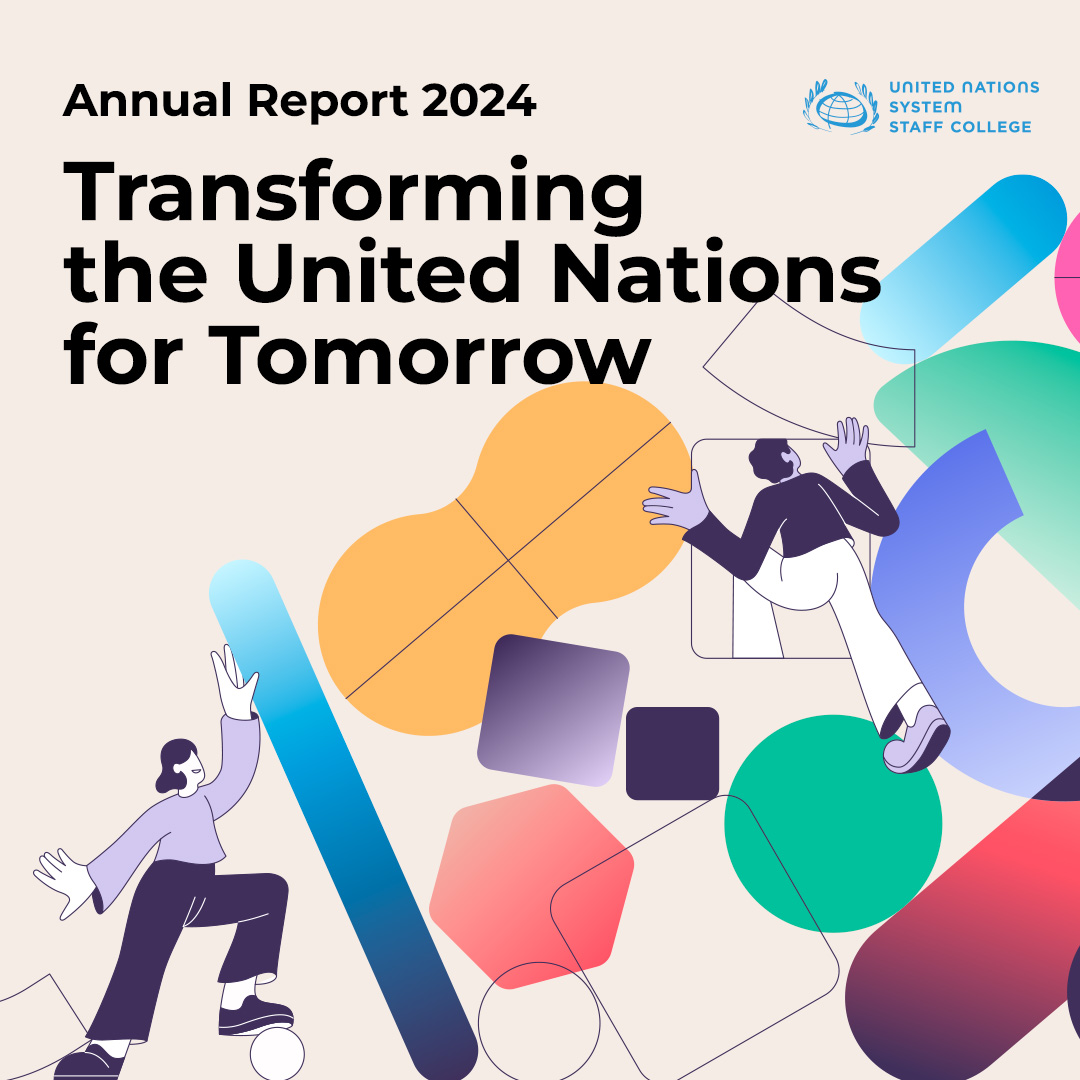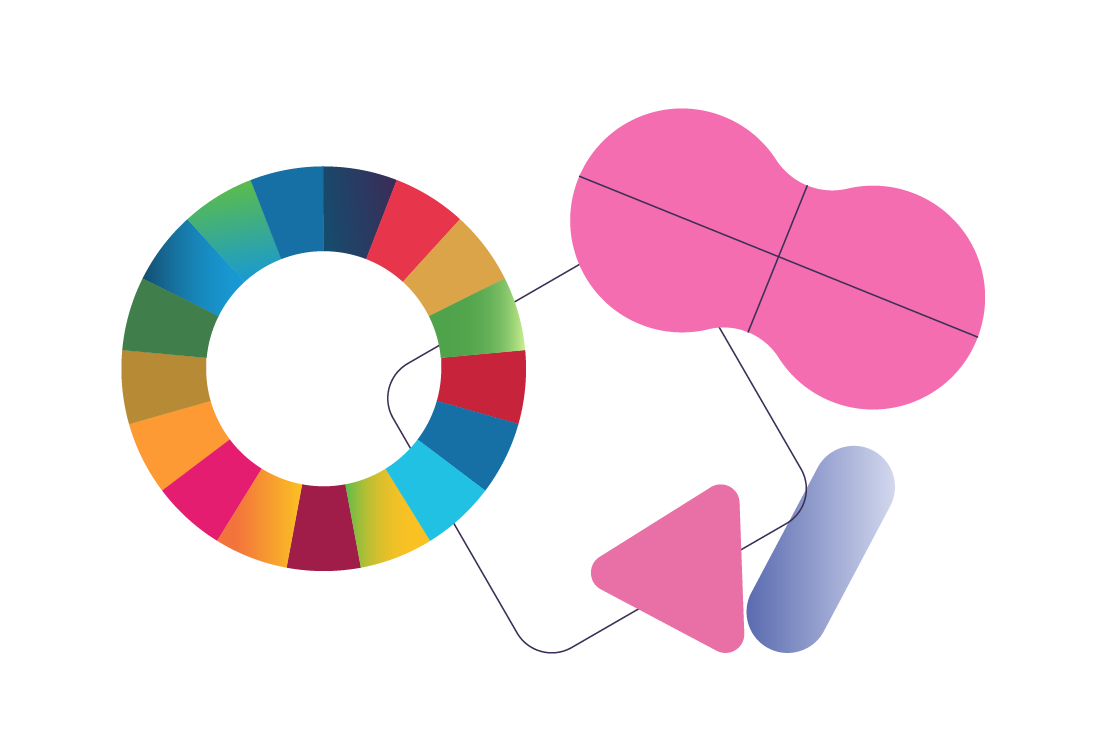


The Global Peace Index 2024 shows that the world is at a critical point, with 56 conflicts—the highest number since the Second World War. Ninety-two countries are involved in cross-border conflicts, and the rise in minor conflicts increases the risk of major ones in the future. To address this, in 2024 UNSSC launched the Strategic Foresight for Prevention programme.
Strategic foresight—the practice of systematically exploring different future scenarios to anticipate and address global challenges—aligns directly with the UN Secretary-General’s emphasis on prevention. Strategic foresight methodologies—such as horizon-scanning, scenario- planning, and trend analysis—identify underlying drivers of conflict, such as climate change, technological disruptions, economic inequalities, and political instability. By recognizing trends early, the United Nations and Member States can take preventive measures before tensions escalate into violence. The UNSSC Strategic Foresight for Prevention programme provided UN personnel and partners with essential tools and methodologies for informed conflict prevention analysis. These tools and methodologies enhanced the abilities of UN practitioners to analyse results to inform decision-making and strategic planning for early warning and conflict prevention. The programme also fostered an anticipatory mindset for thinking and acting more systematically and with a long-term view, thus enabling participants to deal more effectively with uncertainty.


Political Affairs Officer, Office of the Special Envoy of the United Nations Secretary-General for the Great Lakes Region
“This programme not only deepened my understanding of foresight techniques but also highlighted their critical application in the United Nations’ prevention work, aligning closely with the vision of UN 2.0 and the New Pact for the Future. The interactive sessions, real-world applications and the opportunity to exchange with peers made it both inspiring and highly practical. It had an immediate impact on my work, as the insights gained were instrumental in organizing my office’s first-ever strategic foresight exercise. I highly recommend this programme to UN colleagues working on prevention.”
UN senior managers need to build strategic foresight skills to effectively navigate the complexities of global issues and anticipate emerging challenges. By developing these skills, they can better align resources and initiatives with future needs, ensuring that the organization's goals remain relevant and impactful. Strategic foresight enables leaders to foster innovative solutions and partnerships, ultimately advancing the United Nations’ mission in a rapidly changing world.
In 2024, UNSSC crafted and delivered a UN 2.0-focused springboard programme for the Executive Office of the Secretary-General that gave special emphasis to strategic foresight. The programme introduced participants to foresight principles, including an overview and the practical application of the “futures wheel” tool, enabling participants to visualize the future consequences of a particular driver, event or issue. Experts from across the UN system shared real-world strategic foresight case studies, fostering a dynamic exchange that led to practical solutions.

“Fostering effective communication, encouraging interdisciplinary thinking, sparking creativity, prioritizing upskilling, and creating clear, accessible narratives were identified by participants as key changes needed in processes, systems, tools, and ways of working to better integrate foresight into their work.”
UN country teams (UNCTs) need to build strategic foresight skills to identify and proactively respond to local issues and trends that may impact the achievement of the Sustainable Development Goals in their country context. By enhancing these skills, teams can improve collaboration with stakeholders and create more effective, long-term strategies that address local and national needs.
In 2024, 12 UNCTs in the Europe and Central Asia (ECA) region started preparing new UN Sustainable Development Cooperation Frameworks, which are core instruments for providing a coherent, strategic direction for UN development activities by all UN entities at country level. In order to enhance the skills of UNCTs in developing integrated and forward-looking cooperation frameworks aligned with the 2030 Agenda and national priorities, UNSSC designed and delivered the Fostering a Shift Towards Systems Thinking and Innovative Approaches in the ECA Region programme in collaboration with UN entities, including the United Nations Development Coordination Office, United Nations Environment Programme (UNEP), United Nations Population Fund (UNFPA), and UN Women. The programme equipped participants with the knowledge and innovative mindset to engage effectively in UN country programming.
This learning programme brought together 50 participants, equipping them with knowledge and skills to apply systems thinking and foresight methodologies in the design of Cooperation Frameworks. This initiative strengthened capacities across agencies, funds, and programmes to produce nationally responsive strategies.

“The workshop gave me a clearer vision for how to understand existing guidance and a mandate to take the process forward at the country level.”
The Safe and Secure Approaches in Field Environments (SSAFE) and the Individual First Aid Kit 2.0 (IFAK 2.0) combine to provide training that prepares UN personnel to respond to safety and security challenges in high-risk environments. By supporting collaboration across UN agencies, funds, and programmes, the SSAFE+IFAK programme integrates diverse expertise to strengthen operational safety and security. The programme not only addresses immediate deployment needs but also builds long-term capacity, embodying the UN 2.0 vision of a forward-thinking and results-oriented organization.
In 2024, in collaboration with the Italian Military, the programme successfully enhanced the agility and readiness of 125 UN personnel for rapid deployment in high-risk areas such as Ukraine and Gaza.

“The SSAFE+IFAK course was an absolute game-changer for me. As someone with considerable field experience, I thought I had a decent understanding of safety and first aid, but this training took my skills and confidence to an entirely new level. The UNSSC instructors were incredibly knowledgeable, engaging, and supportive, ensuring that every participant gained practical, hands-on experience in handling real-world security challenges and traumatic injuries.”